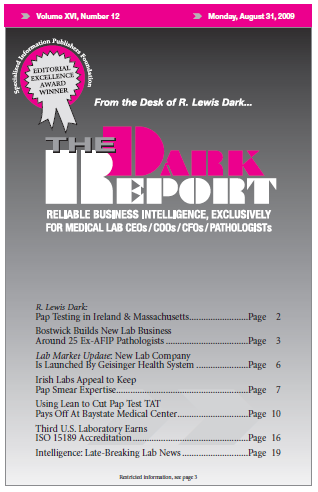CEO SUMMARY: In Ireland, pathologists are asking the government to return enough Pap tests back to the country to support and sustain medical training programs in gynecologic cytology. It was 2008 when the Irish government outsourced all Pap testing to a U.S. lab company. That forced Ireland’s major cytology laboratories to shut down their cervical …
Irish Labs Appeal to Keep Pap Smear Expertise Read More »
To access this post, you must purchase The Dark Report.


